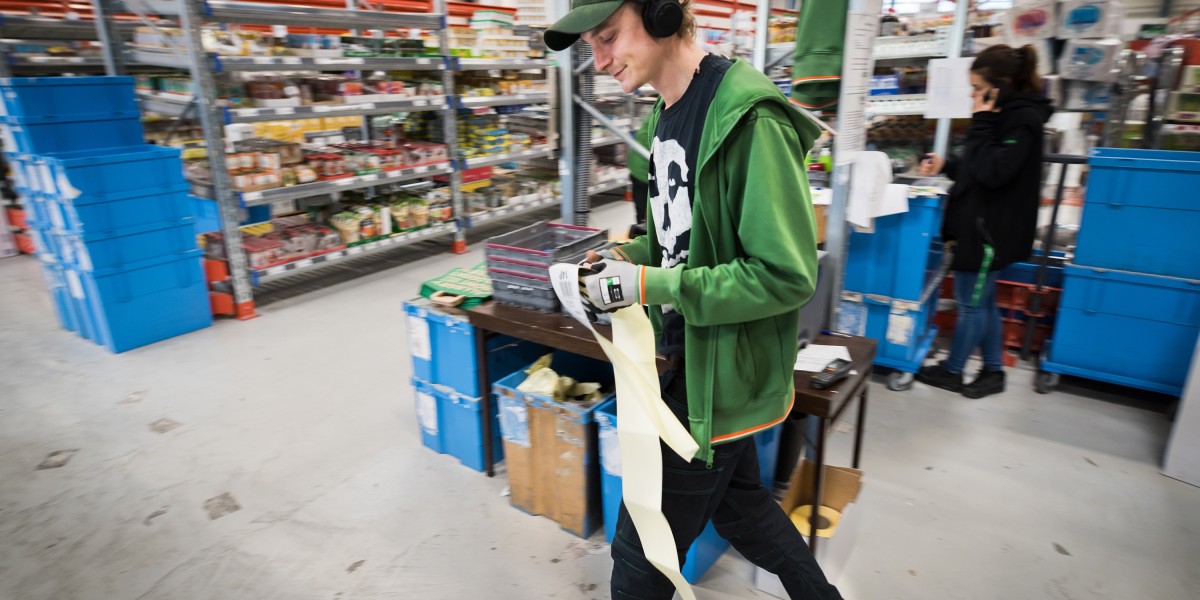While they may look like regular stores or restaurants from the outside, dark warehouses have very limited to no customer-facing operations. Instead, they focus entirely on handling online orders placed through apps and websites for delivery or curbside pickup. Dark stores allow chains to expand their delivery areas without taking on the significant expense and risk of opening new brick-and-mortar locations.
Growth of the Dark Store Model
E-commerce growth has accelerated rapidly over the past decade, fueled by the pandemic. As online ordering becomes more popular than in-person shopping, companies have looked to optimize their operations around fulfillment rather than the traditional retail experience. dark warehouses let businesses operate nimbly in new markets without long-term real estate commitments. Dark Stores has seen explosive growth in recent years from chains in various industries like groceries, convenience stores, pharmacies, and restaurants. Major players setting up large networks of dark warehouses include Amazon, Walmart, CVS, 7-Eleven, and Chuck E. Cheese. Real estate experts predict even broader adoption as limitations of the model are addressed.
Community Impacts of Dark Stores
While dark warehouses provide citizens with increased access and convenience, their rise has not been without controversy or unintended consequences at the local level. The influx of facilities focused only on online orders has drawn complaints about increased traffic, noise, and congestion in residential areas ill-equipped to handle commercial activity. Nearby businesses have also voiced concerns about losing customers to chains using dark warehouses as virtual stores without physical shopping space. Local governments must thoughtfully regulate areas like parking, deliveries, and nuisances to address impacts. Done right, dark warehouses can coexist with neighbors, but issues need open discussion between stakeholders.
Tax Implications
As dark warehouses have non-retail models, they are usually classified as light industrial or warehouse spaces rather than stores. This has led to debates around appropriate property tax levels for such facilities. Some argue their classification understates operational similarities and tax contributions should reflect customer services provided despite the lack of a traditional storefront. However, others counter that higher taxes could discourage needed investments and job creation. Several municipalities have seen legal battles over the right levels, with no consensus view. For sustainability, communities may need compromise solutions reflecting both economic development goals and fiscal realities.
Future of the Sector
While major questions around land use, regulation, and taxes remain open, industry experts foresee dark warehouses playing an even larger role globally in the years ahead. Continuous improvements in same-day and instant delivery technologies, expanded product selections, and service improvements will likely drive further demand that traditional stores cannot always meet. Companies are also experimenting with autonomous vehicles and drones to extend the reach of dark warehouse models. If issues around community impacts can be adequately addressed, many predict dark warehouses transforming fulfillment infrastructure across industries. But substantive discussions are still needed between companies and localities to develop mutually beneficial frameworks.
dark stores represent both opportunities and challenges for businesses and local communities as e-commerce shopping rises. Reasonable regulations and compromise on contentious issues will determine if this fulfilment model fulfills its promise of convenience without costing social cohesion or fiscal sustainability. Open communication between all involved will be key in developing win-win approaches going forward.
Get more insights on — Dark Stores
For Enhanced Understanding, Dive into the Report in the Language that Connects with You.
About Author:
Priya Pandey is a dynamic and passionate editor with over three years of expertise in content editing and proofreading. Holding a bachelor’s degree in biotechnology, Priya has a knack for making the content engaging. Her diverse portfolio includes editing documents across different industries, including food and beverages, information and technology, healthcare, chemical and materials, etc. Priya’s meticulous attention to detail and commitment to excellence make her an invaluable asset in the world of content creation and refinement.
(LinkedIn- https://www.linkedin.com/in/priya-pandey-8417a8173/)



